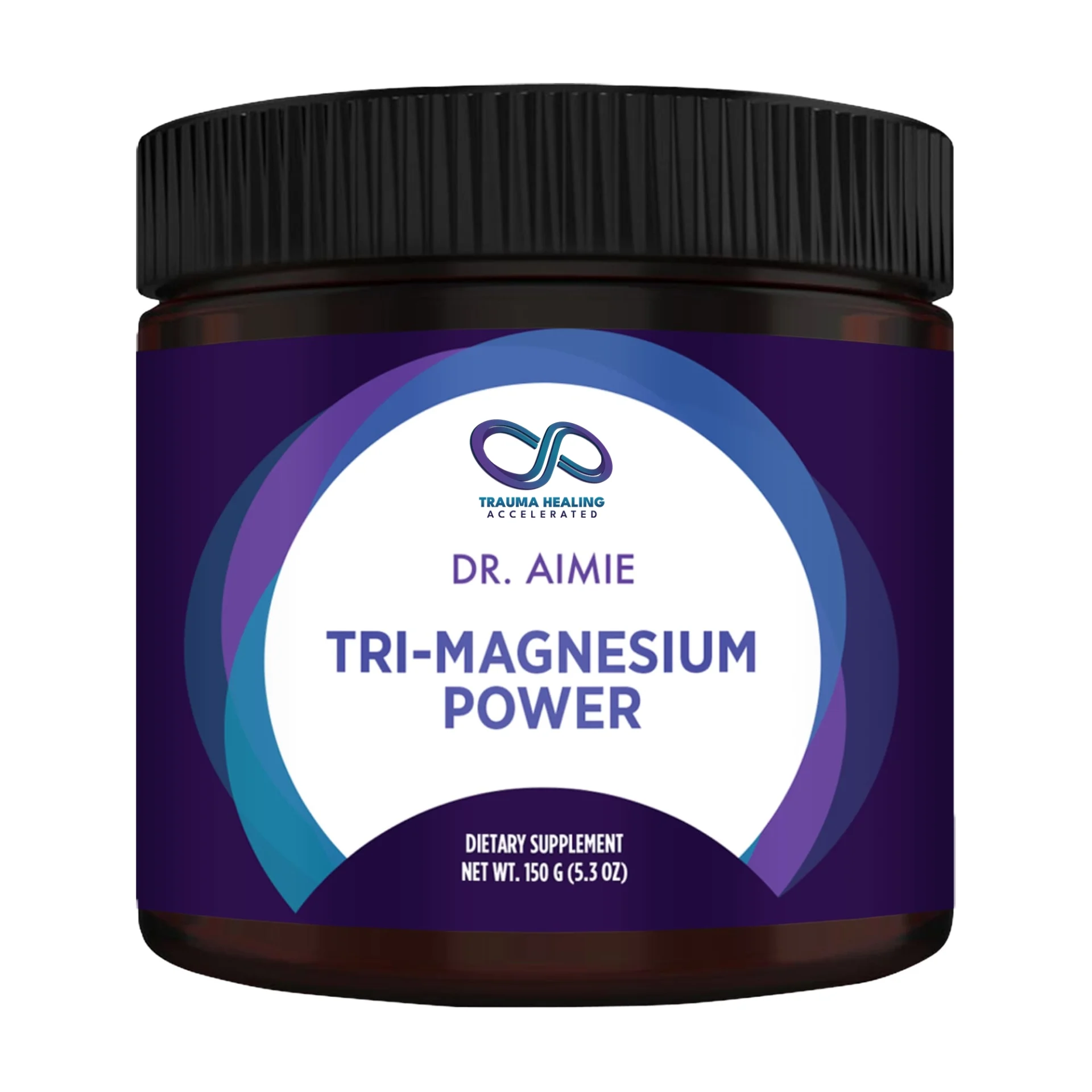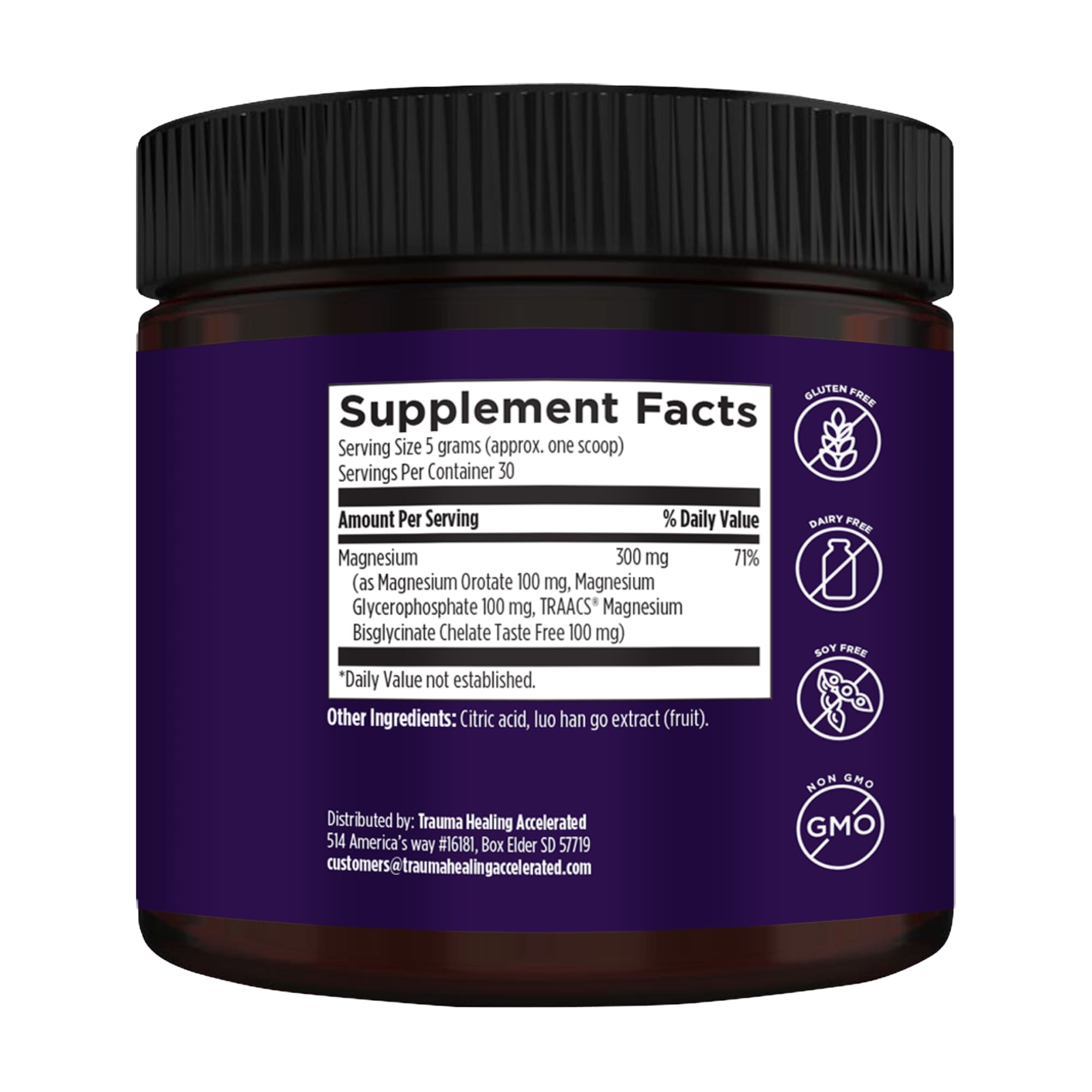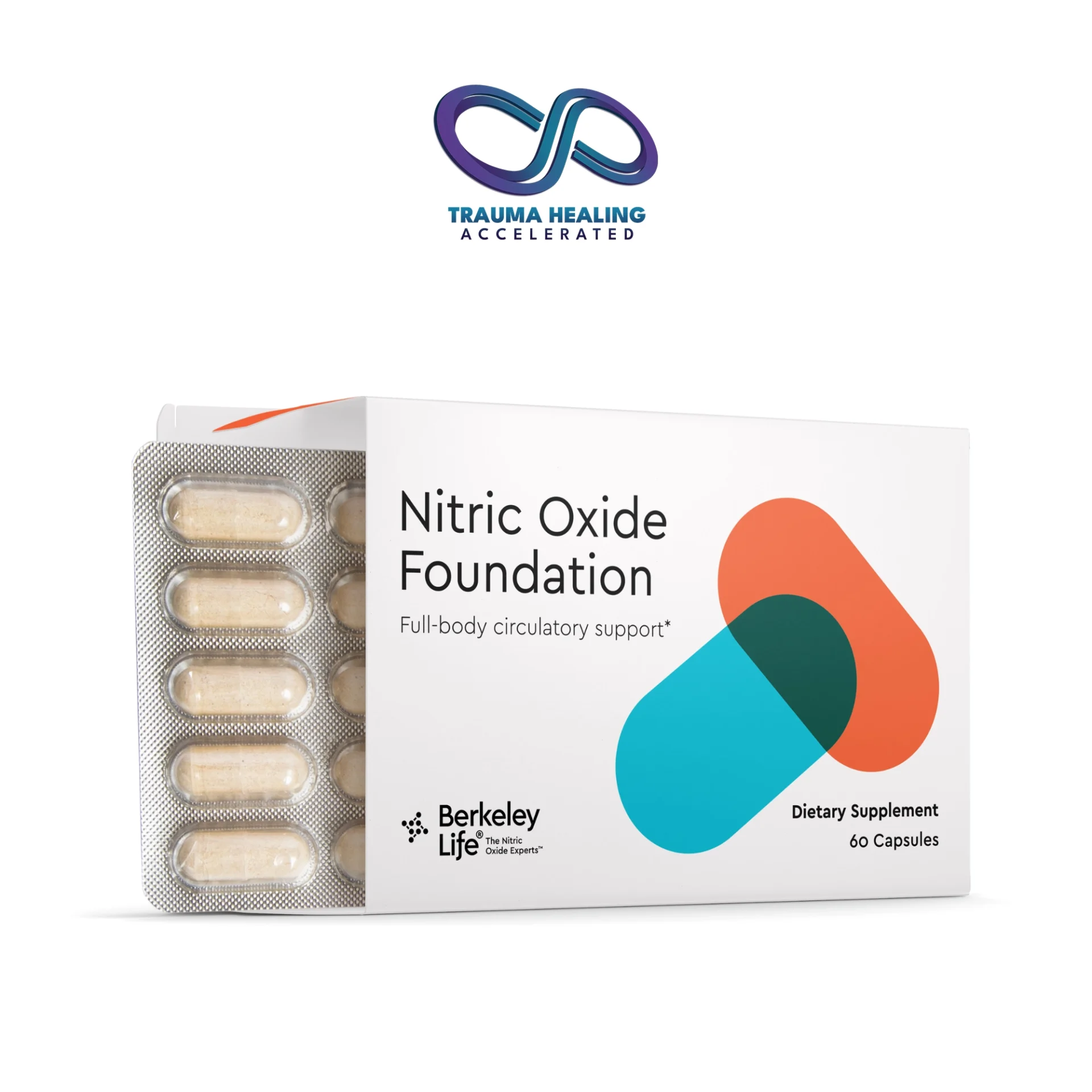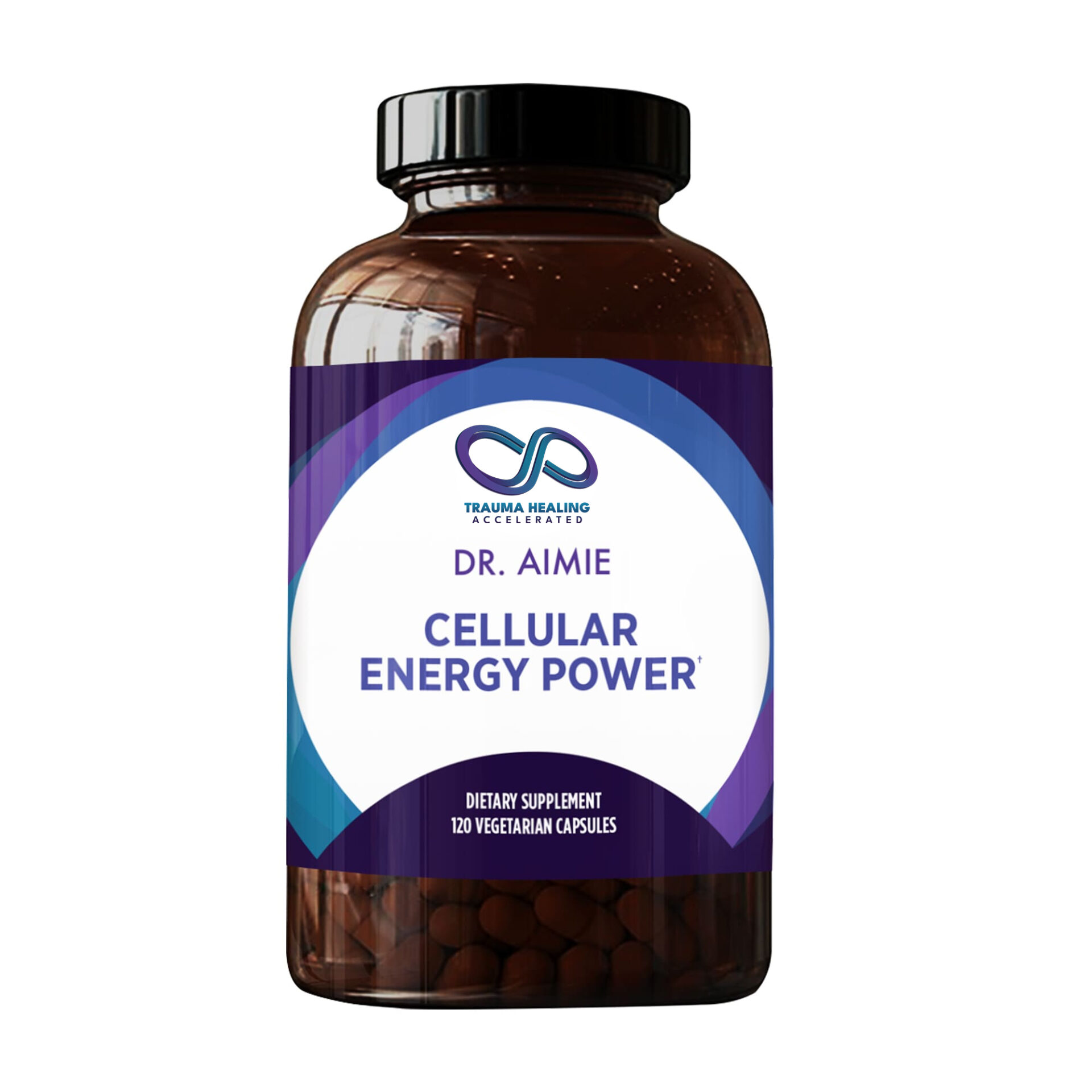Description
Tri-Magnesium Power
Tri-Magnesium Power is a powder drink that contains three forms of magnesium, providing 300 mg of elemental magnesium per serving. This product supports cardiovascular health, blood vessel function, and healthy blood glucose metabolism. The drink is naturally sweetened with monk fruit and contains no artificial sweeteners or stevia.
Magnesium is involved in over 300 biochemical reactions in the body, and it is critical for supporting the nervous system. Chronic stress depletes magnesium, causing a vicious cycle of stress and magnesium deficiency. Magnesium can help to shift and rewire the nervous system after chronic stress and trauma. It is involved in brain neurotransmitters, including serotonin, and is a buffer for the stress response. Magnesium also helps to clear out oxidative stress and free oxygen radicals. Chelated magnesium is the best absorbed, and a supplement that contains multiple forms of chelated magnesium can be helpful. A powder form of magnesium can be easier for the body to digest and process. If you are experiencing chronic stress or trauma, magnesium can be an important nutrient to support the healing journey.
Meet the Magnesiums
Magnesium Orotate
There are two components to this form of magnesium: magnesium and orotic acid. Orotic acid facilitates magnesium’s entry into cells by acting as a transporter. Pyrimidines are also synthesized using orotic acid as an intermediate. A study conducted on animals found that orotic acid stimulated the release of uridine in the bloodstream, improving myocardial purine and pyrimidine levels. (1)(2)
Magnesium Glycerophosphate
Magnesium in this form supports cardiovascular health. In a study of participants with mild-to-moderate hypomagnesemia and atrial fibrillation, magnesium glycerophosphate was associated with a decrease in prevalence of ventricular ectopy. In comparison to other forms of magnesium, magnesium glycerophosphate has shown to have no traditional side effects. (3)(4)(5)
TRAACS® Magnesium Bisglycinate Chelate
The magnesium amino acid chelate in this product is absorbed via dipeptide channels, bypassing the usual active transport and passive diffusion routes for intestinal ion absorption, where magnesium would otherwise compete with other minerals. As compared to many other forms of magnesium delivery, this method allows larger amounts of magnesium to be absorbed more quickly and retained by the body for longer periods of time. A magnesium-glycine complex protects magnesium from binding to dietary phytates and tannins, thus enhancing bioavailability and reducing interference with absorption. When magnesium and glycine break their bonds, the body is able to use both minerals and amino acids. (6)(7)
People with inflammatory bowel conditions, among whom 86% have overt magnesium deficiencies, have been shown to benefit from this form of magnesium. In contrast to chelates, those with compromised intestinal mineral absorption excrete twice as much magnesium when given insoluble salt forms (such as magnesium oxide). In contrast to other forms of magnesium supplementation, this amino acid chelate may be especially beneficial for those who require high doses of magnesium, since relatively high doses result in fewer unwanted gastrointestinal side effects. The use of chelated magnesium has been shown to reduce pain associated with dysmenorrhea and the frequency and severity of leg cramps in pregnant women. (8)
Other Benefits of Magnesium
Exercise requires more magnesium than rest, depending on the activity When you exercise, magnesium helps move blood sugar into your muscles and dispose of lactate. Magnesium supplements may improve exercise performance in older adults and those with magnesium deficiencies. Magnesium intake was associated with increased muscle mass and power in a study of 2,570 women. (9)(10)(11)
Keeping your heart healthy and strong requires magnesium. Studies have shown that magnesium supplements can help lower high blood pressure levels, which may contribute to heart disease. In another study, magnesium intake was associated with a lower risk of heart disease, stroke, and high blood pressure. (12)(13)
Inflammation plays a key role in chronic disease and aging, which is linked to low magnesium intake. According to a review of 11 studies, magnesium supplements reduce levels of C-reactive protein (CRP), a marker of inflammation. According to other studies, magnesium supplements may reduce CRP and other markers of inflammation, such as interleukin-6. (14)(15)(16)















Reviews
There are no reviews yet.